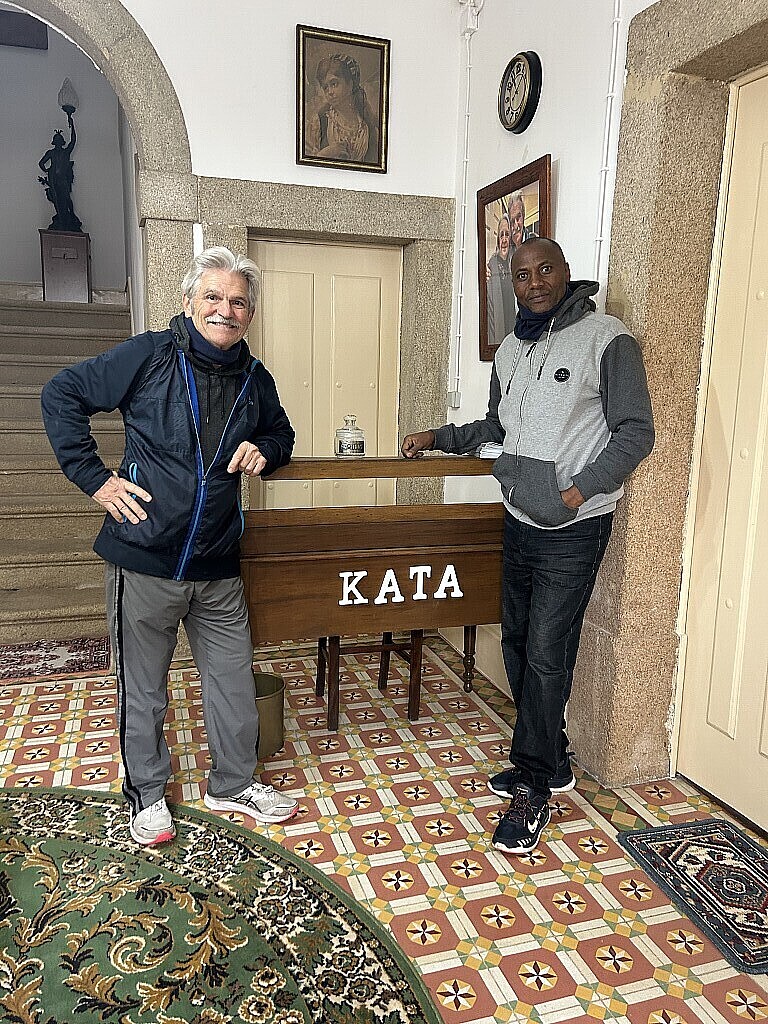Running News Daily
Running News Daily is edited by Bob Anderson. Send your news items to bob@mybestruns.com Advertising opportunities available. Train the Kenyan Way at KATA Kenya and Portugal owned and operated by Bob Anderson. Be sure to catch our movie A Long Run the movie KATA Running Camps and KATA Potato Farms - 31 now open in Kenya! https://kata.ke/
Index to Daily Posts · Sign Up For Updates · Run The World Feed
From Barefoot Champion to Marathon Legend: The Journey of KATA Coach Jimmy Muindi
Jimmy Muindi’s journey from a young barefoot runner in Kenya to an elite marathoner is a testament to perseverance, adaptability, and the drive to push beyond limitations. His incredible career includes winning the Honolulu Marathon six times, running a 2:05:24 marathon, and playing a key role in pacing Paul Tergat to a world record 2:04:55 at the 2003 Berlin Marathon.
Now, Muindi is bringing his experience to KATA Portugal as a coach, offering training, insights, and mentorship to runners of all levels. His coaching philosophy is deeply rooted in his own experience as a professional runner, ensuring that guests at KATA Portugal will learn from someone who has lived the life of a world-class athlete.
This three-part series will explore Muindi’s remarkable career and his transition to coaching:
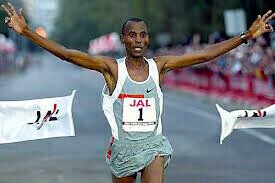
• Part One: His journey from humble beginnings to becoming an elite marathoner and record-setting athlete.
• Part Two: His coaching success in Kenya and what he brings to guests at KATA Portugal.
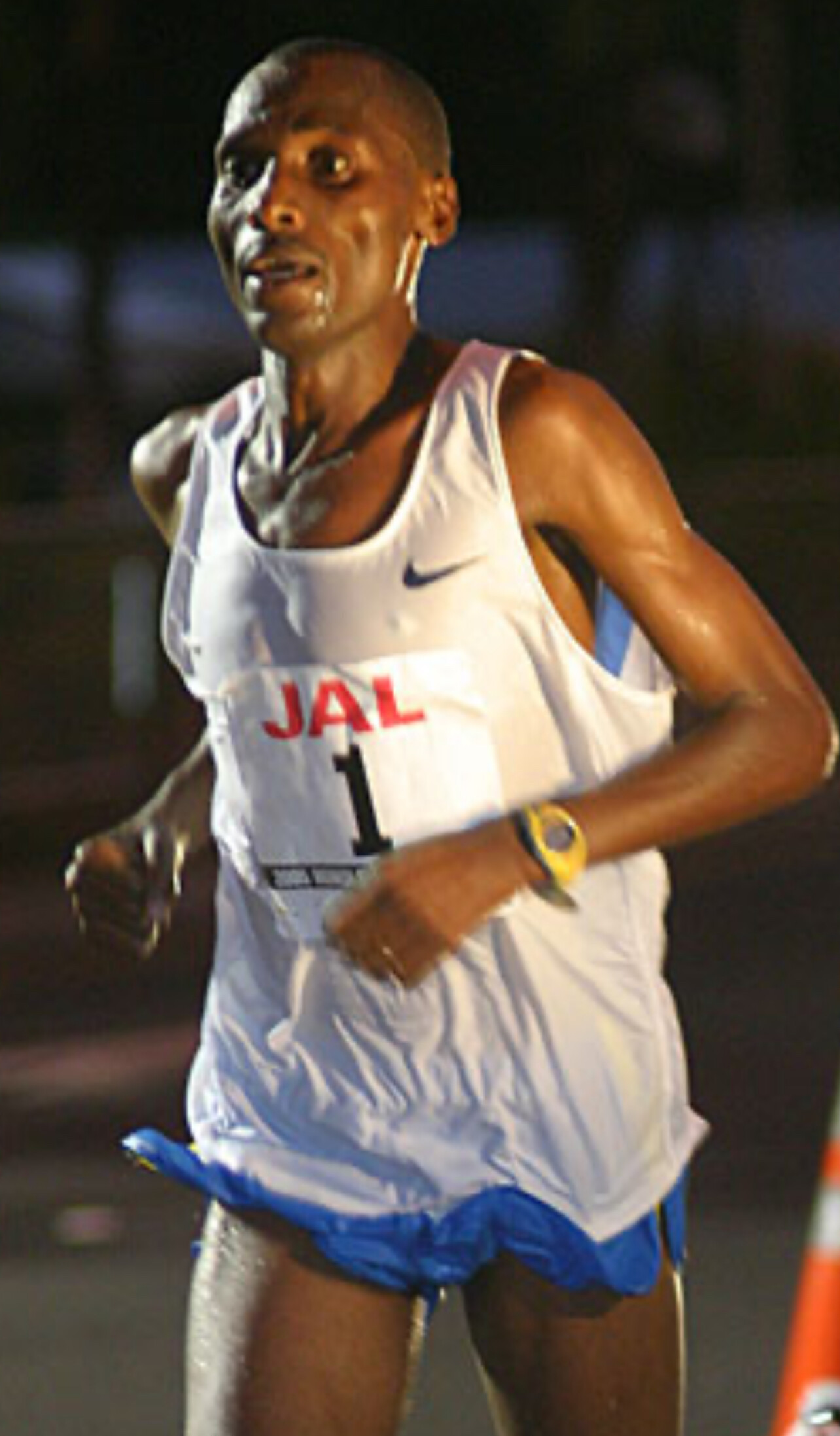
• Part Three: Nutrition and race preparation—why the most important meal for a big race happens two nights before and how Muindi’s personal approach to fueling has helped him perform at the highest level.
Humble Beginnings and Early Inspiration
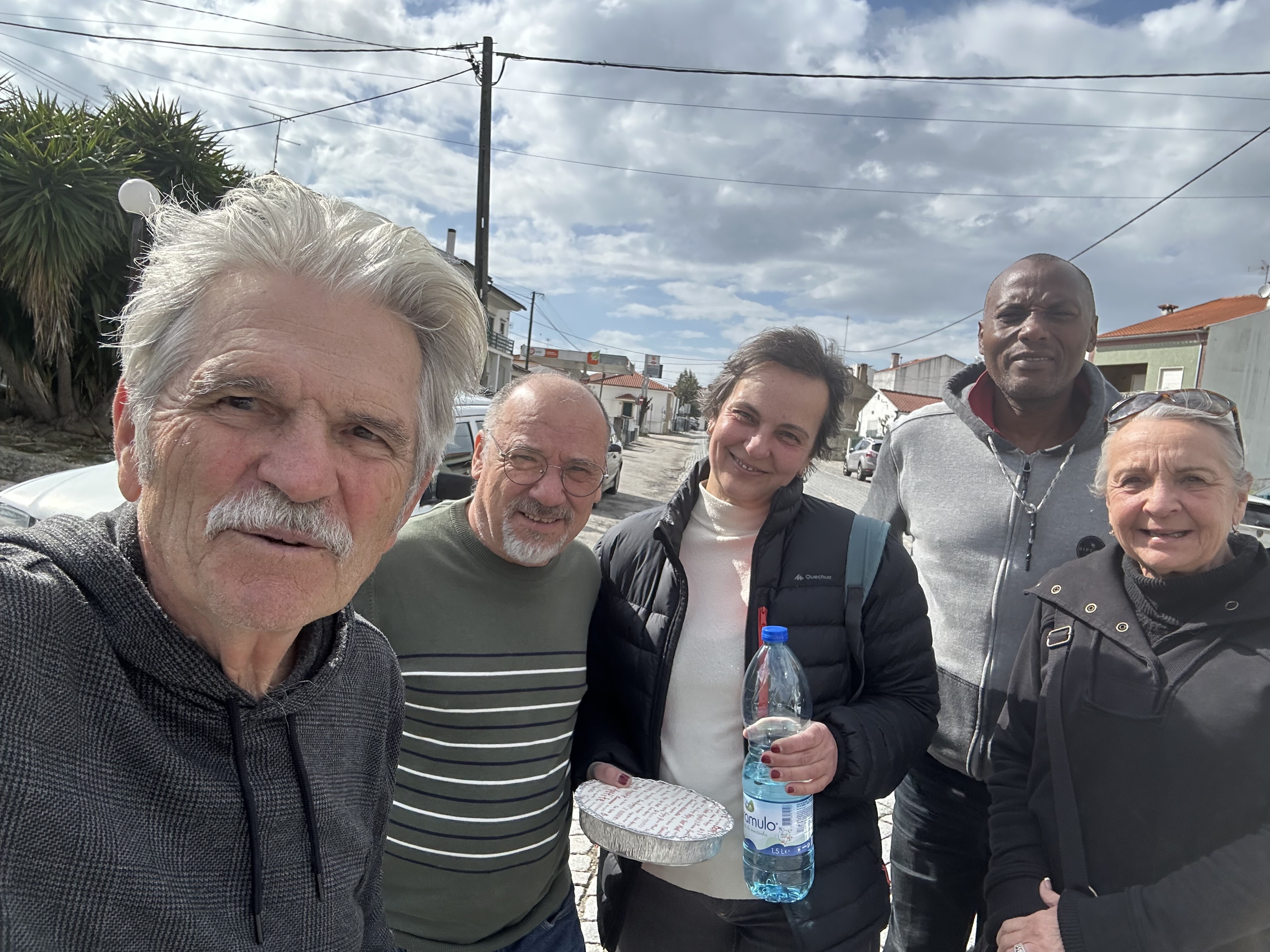
Born into a family of eight children, Muindi was the firstborn and grew up in modest conditions. Food was scarce, and life was challenging, but his mother, was a runner who competed only in school-level races, became his first source of inspiration. At age 15, his mother encouraged him to start running, recognizing his potential.
Then, in 1988, Muindi’s cousin qualified for the World Junior Cross Country Championships. Seeing someone from his own family reach the international stage ignited his dream. Despite his family’s simple way of life, Muindi was determined to see what he could achieve.
High School Breakthrough and First Steps to Elite Running
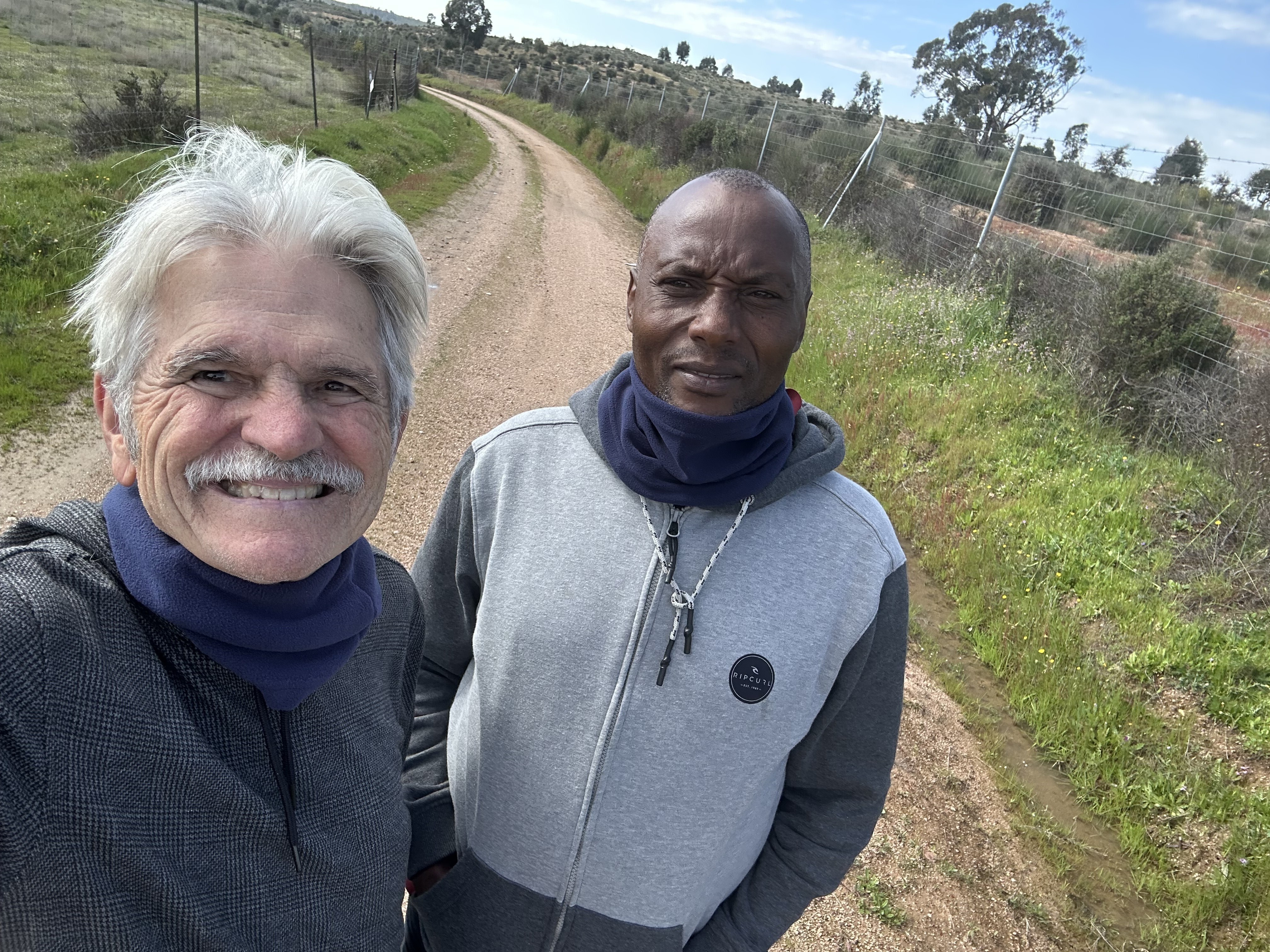
Even without structured coaching, Muindi trained on his own and quickly became the best runner in his school. He performed exceptionally well in long-distance events, often lapping other runners in the 10,000 meters. His talent caught the attention of a national coach, who invited him to a training camp—a turning point that would take his career to the next level.
The training camp was six kilometers from Muindi’s home, and without access to transportation or proper gear, he ran there barefoot to train with the coach who recognized his talent. The camp had about 15 to 20 athletes, and when he joined, he could beat everyone except for two runners—both of whom had running shoes and proper training gear.
Determined to improve, Muindi trained at the camp twice per week under the coach’s guidance. On the other days, he trained on his own four times per week, but because he lacked proper training knowledge, he simply ran miles and miles barefoot, unknowingly building his endurance and toughness.
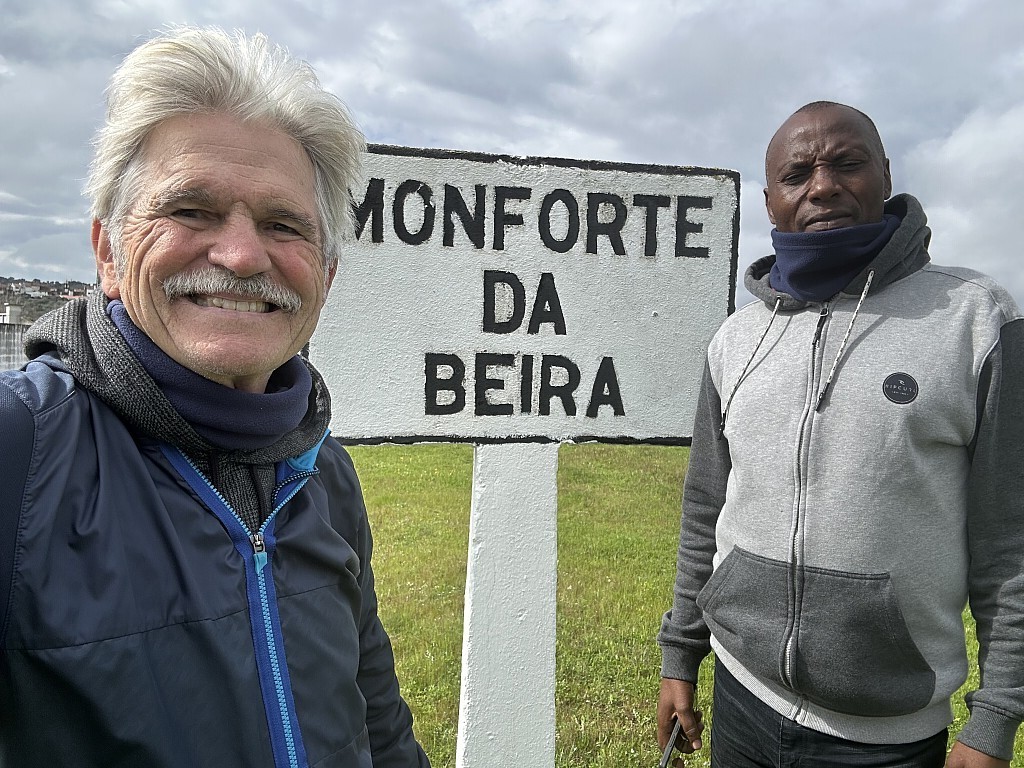
Rapid Improvement and a Life-Changing Connection
The training at the camp was intense. After running six kilometers as a warm-up just to get there, Muindi and the group would do a 6K to 10K hard effort, often running at a 4:00 to 4:30 per kilometer pace at 2,400 feet elevation.
In addition to tempo efforts, they incorporated hill training and track workouts on alternate days. A typical track session included: 4x800 followed by 6x400 and finishing with 4x200.
Muindi made rapid progress. Within two months, he became the best runner in the group, surpassing even those who had more experience and better gear. Recognizing his potential, his coach reached out to Cosmas Ndeti, a rising Kenyan marathoner who was competing internationally, particularly in Japan.
Breakthrough on the World Stage
After meeting Cosmas Ndeti, Muindi’s career took off. Within two months, he became the top junior athlete in Kenya for the 3000m steeplechase and qualified for the World Junior Athletics Championship in South Korea. His rapid rise earned him his first pair of training shoes, a reward that symbolized his status as an emerging talent.
However, when Muindi arrived in South Korea for the World Junior Championships, he faced an unexpected challenge. He was given racing spikes for the first time in his life, but having never worn them before, he struggled to run in them. Instead of risking discomfort or injury, he made the bold decision to compete barefoot, just as he had trained back home.
Against all odds, Muindi won the gold medal, officially launching his international running career.
"So here I was—my first time on an airplane, traveling to South Korea, and winning the gold,” Muindi recalls. “But as a junior, there was no financial benefit. I arrived back home to the same place I left.”
Unlike today, where young athletes receive government incentives for international success, Muindi returned home without financial support. “In today’s world, the government would have given me 1 million KES ($7,700 USD) for that gold medal,” he says. But back then, he had to continue training, hoping his talent would eventually open doors.
A New Opportunity in Yugoslavia
Because of his gold medal, Muindi received a lot of exposure, and just six months later, he was invited to run a half marathon in Yugoslavia. He made the most of the opportunity, finishing second with a time of 1:02:42.
This was not just a breakthrough in racing—it was also Muindi’s first real financial reward from running. “I won $800 USD. Wow, I was excited and had never seen that much money before!” he remembers. This prize money gave him a glimpse of what running could do for his future, motivating him to keep pushing forward.
Honolulu Domination and Marathon Success
Muindi launched his marathon career with a runner-up finish at the 1997 Honolulu Marathon. He quickly made the Honolulu race his race in the years to follow. In an era when Kenyan athletes were dominating distance running, Muindi became a legend in Honolulu – he went on to win the Honolulu Marathon an astonishing six times (1999, 2000, 2003, 2004, 2005, 2007) . In 2004, he set a course record of 2:11:12, a mark that remained unbroken for four years . This string of victories, including three straight from 2003 to 2005, made him inseparable from Honolulu’s running lore. "The course has challenging hills and the weather is hot and humid," he remembers "but the race became part of my life and my family."
His success wasn’t confined to one event, either. Muindi proved his prowess on the global stage by capturing the Rotterdam Marathon title in 2005 with a personal best time of 2:07:50 . He also earned podium and top-five finishes at other major marathons – for instance, placing 3rd at the 2006 Chicago Marathon and 5th at Berlin in 2002 . These achievements against world-class fields reaffirmed his status among the elite marathoners of his era.
Such professional success afforded Muindi not only international experience but also a platform for the next phase of his life. After years of training alongside and against some of the world’s best, Muindi had accumulated a wealth of knowledge about endurance training, strategy, and the “Kenyan way” of running.
Now in his fifties, he has transitioned into coaching, eager to share that hard-earned expertise. He joined KATA in Thika, Kenya – a running academy founded in 2019 by Runner’s World founder Bob Anderson – as one of its expert coaches. In this role, Muindi’s daily lifestyle still revolves around running, from sunrise training runs to mentoring athletes, very much a continuation of the regimen he followed as a pro.
The difference is that today he channels his energy into developing others. His success as a professional runner paved the way for this career: it gave him credibility and a passion he now imparts to up-and-coming runners. In essence, Muindi has parlayed his storied racing career into a thriving vocation as a coach – and his identity as an athlete-turned-coach is a direct product of the triumphs and lessons of his competitive years.
Giving Back: Family and Coaching
Muindi always believed in taking care of his family first. In 1996, using prize money, he bought 10 acres of farmland for his father. Two years later, he built a house for his parents, ensuring their long-term stability. With his family secure, he focused on his own future, purchasing five acres of prime land and building his own house. Today, he uses his land to grow green vegetables, avocados, and raise chickens.
Now, Muindi is giving back to the next generation of runners. He has joined KATA Portugal as a KATA coach, where he shares his expertise and experience, helping others chase their own dreams. His lifestyle today is a direct result of his success as a professional runner, and now he is using that knowledge to guide others.
Coming Next in Part Two
Jimmy Muindi’s success as a professional runner has shaped his coaching philosophy, and now, as a KATA Portugal coach, he is offering world-class training to runners from all backgrounds.
In Part Two, we will explore his coaching success in Kenya and what he brings to guests at KATA Portugal. We’ll take a closer look at the training programs he has developed, the athletes he has worked with, and what runners can expect when training under his guidance.
Stay tuned for the next installment as we dive into Muindi’s transition from elite marathoner to an elite coach and how he is bringing the Kenyan way of training to Portugal.
(photos: 1. Muindi setting the course record in 2004. 2. At KATA with Bob Anderson. 3. Racing in Honolulu 4. Muindi with some of KATA Portugal staff with Bob and Catherine Anderson.
Login to leave a comment


